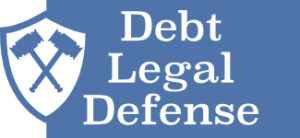Bankruptcy can provide relief from debt and the ability to start over, but there are some significant drawbacks to be aware of. It is important to weigh the pros and cons of filing for bankruptcy before making a decision. Knowing the pros and cons of filing for bankruptcy can help you make an informed decision about your financial future.
The Pros of Filing for Bankruptcy
Filing for bankruptcy can be a difficult decision to make, but it may be necessary to provide the financial relief you need. While it does come with some drawbacks, there are many pros of filing for bankruptcy that should be taken into consideration when making this important decision.
- Bankruptcy stops the collection calls, lawsuits, and wage garnishments: When you file for bankruptcy, an “automatic stay” is immediately placed on your debt, stopping creditors from calling, suing or garnishing your bank accounts.
- Bankruptcy eliminates most of your debts: In some cases, filing for bankruptcy can provide you with a chance to eliminate most of your unsecured debt, such as credit card debt, medical bills, and personal loans.
- Bankruptcy provides you with a fresh start: After a certain period of time, the court will discharge the majority of your remaining debt, giving you the opportunity to start over financially.
- Bankruptcy may protect some of your assets. Depending on the type of bankruptcy you file, some of your assets may be protected from being liquidated or used to pay back your debts.
- Bankruptcy can help repair your credit. While filing for bankruptcy will cause a large drop in your credit score, it can also give you the opportunity to start rebuilding your credit once the bankruptcy is finalized.
The Cons of Filing for Bankruptcy
There are many cons to filing for bankruptcy, including the following:
- Negative Impact on Credit Score: Your credit score will drop significantly after filing, and you may have trouble getting credit in the future. Some, however, benefit when applying for credit because they no longer have any debt.
- Loss of Property: When you file for bankruptcy, you may have to give up certain assets, such as your car or house, in order to pay off creditors. This can be a difficult loss, especially if these items are necessary for daily life.
- Bankruptcy Can Be Expensive: Bankruptcy is not free; there are filing fees and court costs associated with the process.
- Debt May Not Be Discharged: Depending on your type of debt and other factors, some of your debt may not be discharged through bankruptcy. This means that you may still have to make payments on this debt after filing for bankruptcy.
- Bankruptcy Lasts For Years: Bankruptcy will remain on your credit report for up to 10 years, making it difficult to get credit in the future.
How a Bankruptcy Lawyer Can Help
If you’re considering filing for bankruptcy, the best way to protect your interests is to consult with a bankruptcy lawyer. A qualified bankruptcy lawyer can help you understand the complexities of the bankruptcy process and provide valuable advice on how to approach filing. If you’re considering filing for bankruptcy, contact Debt Legal Defense today for a confidential consultation with a qualified bankruptcy attorney.






